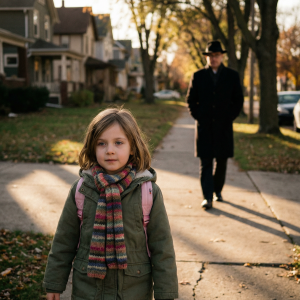Losing my mother meant losing the person who understood my soul, but she left behind something precious: her little waterfront cottage where we’d spent countless mornings watching the mist rise off the lake while she taught me to capture light on canvas. That sacred space became my lifeline after her death, a refuge where her spirit felt closest to me. Then my father brought home Rebecca, a woman who seemed to view my mother’s memory as competition rather than something to honor. She’d smile sweetly while making cutting comments about “all that old-fashioned artsy stuff” Mom had loved, systematically erasing traces of her from our family home. The cottage, however, remained untouchable—my one non-negotiable boundary in a world suddenly full of compromise.
The violation came on the most sacred day possible: the anniversary of Mom’s death. I drove up expecting to spend the day in quiet remembrance, maybe work on the watercolor I’d been painting of her favorite sunrise view. Instead, I found thumping music, unfamiliar cars scattered across the gravel, and Rebecca playing hostess to a crowd of strangers on what should have been hallowed ground. My stomach twisted when I spotted Mom’s handstitched throw pillow—the one with tiny wildflowers she’d embroidered during chemo—being crushed under someone’s dirty boots. I didn’t cause a scene that day, but fury burned in my chest as I realized Rebecca had somehow gotten hold of my keys.
Armed with my attorney’s guidance, I began building my case methodically. The cottage’s security cameras told the whole story, capturing not just the unauthorized party but weeks of Rebecca’s secret visits. Even more damaging were the text messages I uncovered through legal channels, where she mocked my “pathetic shrine” and joked with friends about throwing “ragers at the dead lady’s shack.” Each piece of evidence felt like another slap, but it also strengthened my resolve to protect what Mom had entrusted to me.
Rebecca’s reaction to my confrontation was predictably dismissive—she waved off my “melodrama” and insisted she was just “bringing some life to a depressing place.” But courtrooms deal in facts, not excuses. The judge wasn’t swayed by her tears or claims of misunderstanding. She faced real consequences: trespassing charges, a restraining order, and financial responsibility for damages. My father, confronted with undeniable proof of her callous disrespect, couldn’t reconcile the woman he’d married with the person revealed in those text messages. Their relationship crumbled shortly after.
The cottage stands secure now, protected by upgraded locks and enhanced surveillance, but more importantly, it remains exactly what Mom intended it to be: a sanctuary where love and memory intersect. Rebecca’s betrayal cut deep, but it also awakened something fierce in me—a determination to defend what matters most, even when others try to diminish its value. Now, when I sit on that weathered dock watching dawn break across the water, I hear Mom’s gentle wisdom echoing in my heart: “Quiet waters run deep, sweetheart.” Her legacy doesn’t just survive—it thrives, protected by the strength she gave me and the love that will never fade.





